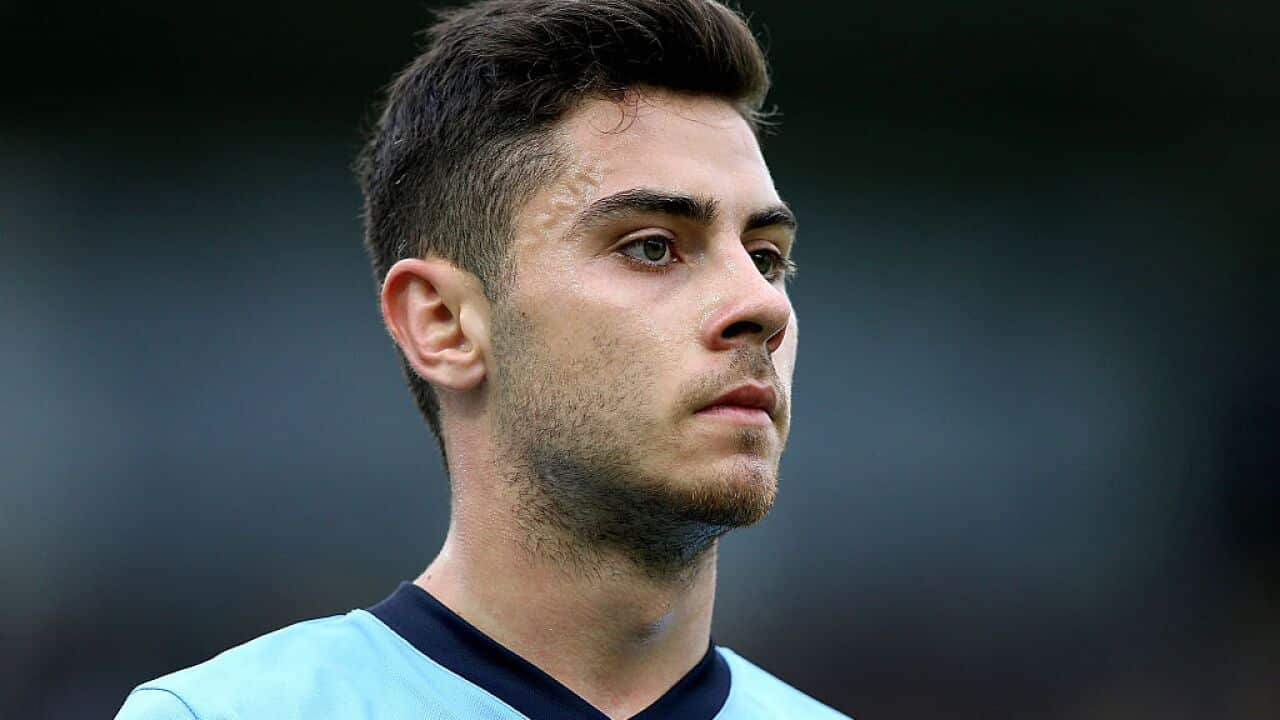Chris Naumoff was destined for great things from a young age. An Australian youth international footballer, he made his professional debut for Sydney FC at just 18.
Then, after three years with the club, a dream offer emerged from Spanish side Numancia.
"I flew over, was put into my apartment and saw the world at my feet," the 21-year-old said.
But Naumoff's dream came crashing down. After an electrocardiogram (ECG), Numancia's cardiologist diagnosed him with Hypertrophic Cardiomyopathy, also known as HCM, a genetically inherited disease which can cause sudden death when the heart is put under extreme exertion.
"Obviously it was a total shock, which I wish upon no one to see their dreams come crashing down within a day," Naumoff said.
Until this year, cardiac screening and ECG tests were recommended by Football Federation Australia, but not mandatory.
Under the latest Minimum Medical Standards agreement, each A-League Club must ensure that a 12-lead-resting ECG test is conducted in a player's first year with a club, and at least once every two years thereafter.
FFA said that every player who played during the 2015-16 Season completed such a health check.
"The prescribed pre-competition medical assessment declaration form specifically noted that the medical assessment includes a 12-lead-resting ECG. The form must be signed by the player and club doctor.
"Every contracted player who played in the A-League last year completed this form."
Naumoff alleges he was not given an ECG at any time in his three years at Sydney FC until February this year, while the 2015-16 season was still underway.
"We were informed the day before training that we were to be called into training to have an ECG test done for that reason. Obviously, each and every player had that test done. I heard nothing back from the results. So as you would guess, I thought everything was fine," Naumoff said.
As he would find out months later in Spain, everything was not fine. "The results [in February] did show that there was something wrong with my heart and that I did need further testing. I wasn't made aware of this. Why that's the case? I'm not sure. But this is definitely a thing that's on the results and something that should have been taken further at the time."
"The results [in February] did show that there was something wrong with my heart and that I did need further testing. I wasn't made aware of this. Why that's the case? I'm not sure. But this is definitely a thing that's on the results and something that should have been taken further at the time."

Christopher Naumoff celebrates a goal with former teammate Alex Gersbach. Source: Getty Images
Naumoff went on to play six more games for Sydney FC. He said he'll never know how close he came to death during those matches.
Sydney FC said the club was "saddened" by Naumoff's decision not to continue playing.
"As a club, Sydney FC does not disclose the confidential medical records of its players to the public. At the end of the 2015-16 A-League Season, the club offered Christopher Naumoff a new 12 month contract for the 2016-17 season. Christopher did not accept the offer from the club. Sydney FC is saddened by the untimely retirement of Christopher and wishes him well in his future endeavours," the club said in a statement.
But Naumoff said he is still seeking clarification as to whether Sydney FC knew he had the disease.
"The question was asked and in terms of getting an answer from whoever needs to answer these questions, (it) is still up in the air," he said.
Professional Footballers' Association Chief Executive John Didulica believes cardiac screening is an issue that must be tackled by all stakeholders, especially the clubs, but believes that Chris Naumoff's case seems to have slipped through the cracks.
"Thankfully in Chris's situation the standards that existed in Spain caught his specific condition and we've been able to intervene before what would have been a terrible event," Didulica said.
"I don't think these testing regimes are about pointing the finger or about apportioning accountability to any one person," he added.
"I think, as an industry, we all have to accept what responsibilities we have to young professionals, young people, be they boys or girls putting their livelihoods or their health of the hands of clubs and federations. Those clubs and federations need to ensure that they're adhering to the high standards of medical care."
SBS has sought a response from Sydney FC to the allegations.

